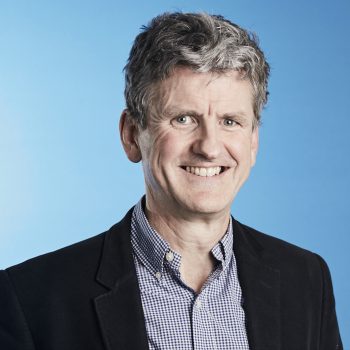The role of a SAB and why it’s important
A personal reflection from Professor Miles Parkes, Director of NIHR Cambridge Biomedical Research Centre (BRC)
Every two years something very special happens in the life of the NIHR Cambridge BRC – and it’s something we all look forward to hugely.
It’s when our international Scientific Advisory Board (or SAB) of leaders in biomedical research join us over two days as ‘critical friends’, to hear about our early translational research (research fresh from the laboratory, exploring how it can be applied in people to sustain health and treat disease), review its quality and provide strategic direction. The meeting also provides an opportunity for us and our partners to come together to celebrate our successes and take a critical look at ourselves. This whole process is crucial, not only for our governance, but to hold us accountable for the research we do.
In April this year, meeting in the Cancer Research UK Cambridge Institute, I welcomed our SAB and a large audience with a brief introduction to the biomedical campus with its rich inter-digitation of healthcare, research, and industry facilities. The BRC plays a key role in supporting early translational research infrastructure, enabling projects led by our investigators and their partners. Many of these projects involve extensive collaborations and reach beyond the campus to our region and nationally.
After my introduction I handed over to the leads of our 13 research themes for a sequence of presentations on their ground-breaking research and its impact. Their emphasis is absolutely on priorities identified by patients, and how our research can best address their concerns and health priorities. None of our research would happen without patients – and so we had talks on our patient and public involvement and equality and diversity work, and an opportunity for the SAB and others to see first-hand the new Clinical Research Facility (a place for participants to take part in research) in the Victor Phillip Dahdaleh Heart and Lung Research Institute.
Over two days, we enjoyed lots of opportunities to ask questions and give feedback – including where we can improve. There was lots of thought-provoking discussion about the direction of research and how we can develop new diagnostics and treatments for some of our biggest health challenges.
Having an event like this is critical to our work – highlighting the successes but also providing an opportunity for constructive criticism. I was delighted to see the SAB members so engaged, see so many staff in the audience – and receive so many positive comments regarding the important research we do in Cambridge.
But please don’t just take my word for it: watch our short video and hear for yourself why our attendees think that our biomedical campus supported by the NIHR Cambridge BRC is a special place to conduct health research.



